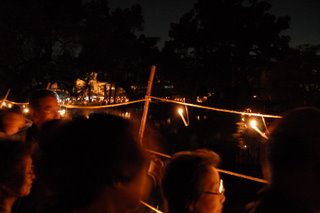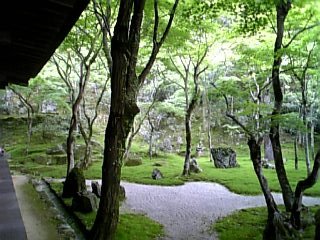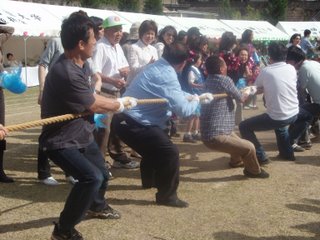This follows previous extracts of Joan Sinclair's book here and here.
Japan's sex industry is a sureal world. Full of fetish and the bizarre, it is a major (if not mainstream) part of Japanese culture, full of educated women, and not a lot of sex. It is, in other words, a world away from 15 year old girls in mini-skirts standing on street corners in Kings Cross.
That at least, is the impression you get from reading Sinclair's book.
When you think of the words "sex industry", the image is a seedy, underground, world populated by a small number of desperate men. Sinclair points out, however, that it is Japan's 2nd biggest industry after cars. It's also an industry worth $20 billion. That's twenty billion dollars. Another source reports that the sex industry accounts for 1% of the GNP, and equals the defense budget.
What's more, it's not really underground. Not only is taking a client to a hostess bar common practice, it's apparently even tax-deductible. You can buy guides to where to find establishments of the sex-industry in train station shops and 7-11. Inside are maps that show that every half-decent sized train station (including my local one) has numerous establishments in its vicinity.
The sex industry also has strong roots in Japanese traditions - which refuse easy labelling as prostitution. The most popular part of this industry, the hostess bar, has no sex involved. It is paying for women to entertain and flirt, and otherwise oil the conversation and between men: a descendent of the Geisha practice.

Sinclair writes:
All I ask is that viewers not assume that this profession is inherently degrading. It's more complicated than that. These women are not powerless, they are not on drugs. They have made conscious choices; they have their own dignity.
Some of the quotes in this book support this...
"I love my job. I meet powerful men and interesting executives and people I would never get to meet otherwise."
Asuka, 26
"I started working at a pink salon three years ago. I was nineteen and beauty-school student. I lived at home, but I love to shop and I wanted a part-time job. I was at a train station and they were handing out tissues. On the tissue pack, there was an advertisment for a part-time job that paid ¥4,500 per hour. It said "easy work, one time a week is okay"...
....I went to the interview and they told me what the salary was before they explained the job. But deep down I knew; it had the feel of a "pink (salon". I took a deep breath and ... auditioned on the manager."
Sinclair is right to make the case for paying attention to Japan's sex-industry as a major part of Japanese culture, and for recognising how different it is to the images and associations that would surface in most Westerners' minds upon hearing the words "red-light district".
What's more, the documentation that Sinclair's book represents is entertaining. Watching how every part of Japanese salaryman life has been systemitically fetishized is simply very funny. You can go in the all-you-can grope train carriage for example; or go to the "Sexual Harrassment Office" where one chooses the colour and make of secretary's underwear, rips it off a "secretary", and then goes home - having parted with a lot of money on the way.
Other stuff is bizarre: for example, one can rent (for not a little money), a life-size silicone doll, where one can choose the head, hair and other features, a wife away from home.
"Our customers are usually too shy to be with a real woman ... or sometimes they just don't want to hear their wives nagging anymore."
All this is pretty fascinating stuff.

However... some of the quotes are more unsettling:
"It would take a year to earn the money for my purse if I was working in an office"
"You never get real satisfaction, you never get enough... That's why I need a real girlfriend, so I don't have to spend so much money"
Teiji, 25 customer
It is surely a lamentable situation that a purse could be that important, especially when its real price is a life that makes a real relationship with a man, and the possibility of true love that represents, impossible. Also I don't have to be a penis-hating feminist to think that seeing a girl-friend as a "prostitute for free", is degrading to women, but also to the man. It is also sad that Asuka who "loves her job", is only going to meet executives and interesting people in such a situtation. And it is true that hostessing is an attractive option for so many partly because the only other main job opportunity for women is to be an office-girl: a photocopying, coffee-fetching pretty face expected to resign late 20s having married one of the older executives of the company.
 It is also true that although most hostess-bars are not brothels, brothels do exist in abundance. And let's make things clear: they sell sex. Not every Japanese sex-worker is an educated, middle-class girl living a bit on the wild side before she gets married. There are some 60,000-70,000 Filipina dancers in Japan. Presuming that these girls don't speak Japanese, you have to presume that not all are here for their conversation skills.
It is also true that although most hostess-bars are not brothels, brothels do exist in abundance. And let's make things clear: they sell sex. Not every Japanese sex-worker is an educated, middle-class girl living a bit on the wild side before she gets married. There are some 60,000-70,000 Filipina dancers in Japan. Presuming that these girls don't speak Japanese, you have to presume that not all are here for their conversation skills.
The International Coalition against trafficking of Women also reports...
One third of all reported cases of prostitution are teenagers. (1996 National Police Agency survey) and about a quarter of female students aged from 12 to 15 have taken part in telephone chat clubs.
The legal age of consent for sex in Tokyo and Nagano was as late as 1997, 13, not 18 like the rest of the country.
and the most upsetting...
A woman was arrested for selling her 16-year old daughter to a geisha house in northwest Japan for one million yen (US$6,800). The girl escaped and sought police after her mother abused her for running away. ("Japan police say mom sold daughter to geisha house," Reuters, 7 August 1998)
However, it has to be said that most of my problems with the industry are not to do with selling sex, but with exploitation. And the truth is that you don't have to go far in Asia to find no qualms sexual-exploitation: trafficking, abduction and slavery of children as well as women. What's more, exploitation is not limited to the sex-industry.
Exploitation aside, what seems most saddening about the world that Sinclair documents is the materialism (purse vs. possibility of meaningful relationship) and making women into things, rather than treating them as people. But then again I suppose - welcome to humanity...
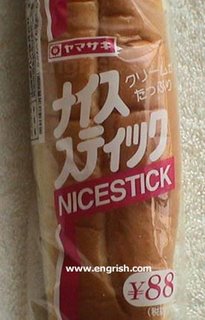






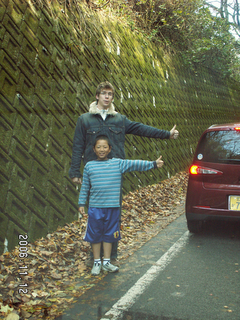




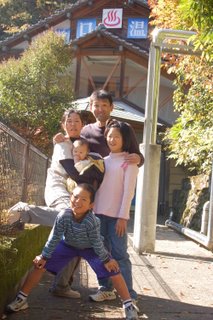



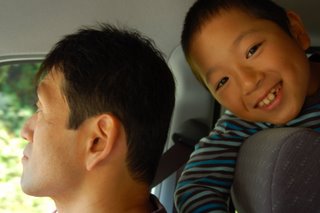




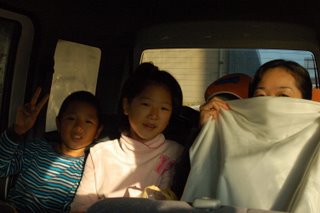


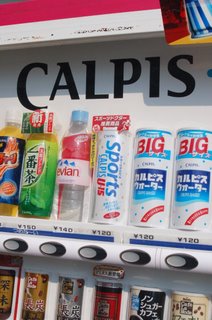






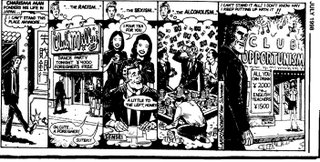



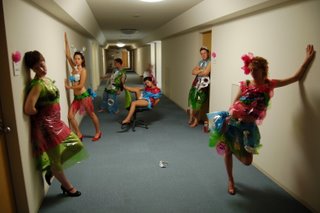
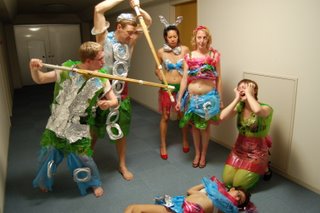

 more
more 